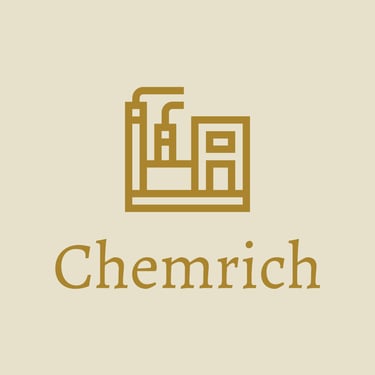CarAT: AI-Powered Carbon Atom Tracing for Sustainable Manufacturing
Technical deep dive into CarAT (Carbon Atom Tracker), a newly proposed method using chemistry language models and value chain modeling to track biogenic vs. fossil carbon sources—ideal for sustainability compliance.
shehan makani | eshan makani
8/26/20251 min read
CarAT: AI-Powered Carbon Tracking for the Future of Sustainable Manufacturing
In today’s chemical industry, one of the greatest challenges is proving where your carbon really comes from. Is it fossil-based? Biogenic? Recycled? Regulators, customers, and investors increasingly demand transparent, verifiable answers — and traditional life-cycle assessments often fall short.
Enter CarAT (Carbon Atom Tracker), a newly proposed AI-driven framework that could revolutionize how companies track carbon flows across the chemical value chain.
What is CarAT?
CarAT combines:
Chemistry Language Models (CLMs) → to interpret molecular structures and reaction pathways.
Value Chain Modeling → to map how carbon atoms move across suppliers, processes, and products.
AI-Powered Traceability → enabling companies to distinguish biogenic vs. fossil carbon sources with unprecedented precision.
This approach allows manufacturers to create a digital twin of their carbon footprint — down to the atomic level.
Why It Matters
Regulatory Compliance
With the EU’s Green Deal, CBAM (Carbon Border Adjustment Mechanism), and new supply chain laws, proof of carbon origin is no longer optional. CarAT provides an AI-backed methodology for real-time compliance.
Market Advantage
Brands and consumers increasingly favor products with verified low-carbon or bio-based content. CarAT enables companies to back sustainability claims with traceable data.
Investment Readiness
Financial institutions are shifting portfolios toward climate-aligned industries. Demonstrating verifiable carbon tracking can unlock green financing opportunities.
Potential Applications
Green Chemistry & Bio-based Manufacturing
Tracking renewable carbon streams (e.g., bioethanol → bioethylene → bioplastics).
Circular Economy Models
Differentiating between virgin fossil feedstock and recycled content in plastics or solvents.
Scope 3 Emissions Transparency
Giving downstream customers a carbon story for every molecule they purchase.
CarAT + Chemrich: A Natural Fit
At Chemrich, our focus on AI-driven sourcing, formulation, and sustainability aligns directly with CarAT’s vision. Imagine integrating CarAT into our smart sourcing platform:
Buyers could select suppliers based not only on price & MOQ, but also on verified carbon source.
Formulators could optimize blends to minimize fossil-based input.
End-users could receive digital sustainability certificates, enhancing trust and compliance.
Looking Ahead
CarAT is still in early research stages (arXiv preprint published August 2025), but its implications are profound. As AI matures in chemistry, tools like CarAT will become essential for:
Regulatory alignment (EU, US, India, global)
Corporate ESG reporting
Consumer trust in green products
At Chemrich Group, we’re exploring how to pilot such frameworks within our AI platforms — to ensure sustainability is not just a claim, but a measurable reality.
Chemical Solutions
Trusted partner for industries seeking high-quality chemicals, custom manufacturing solutions, and advanced pharmaceutical equipment.
Innovation
Growth
© 2025. All rights reserved.
Connect
Chemrich Global.


